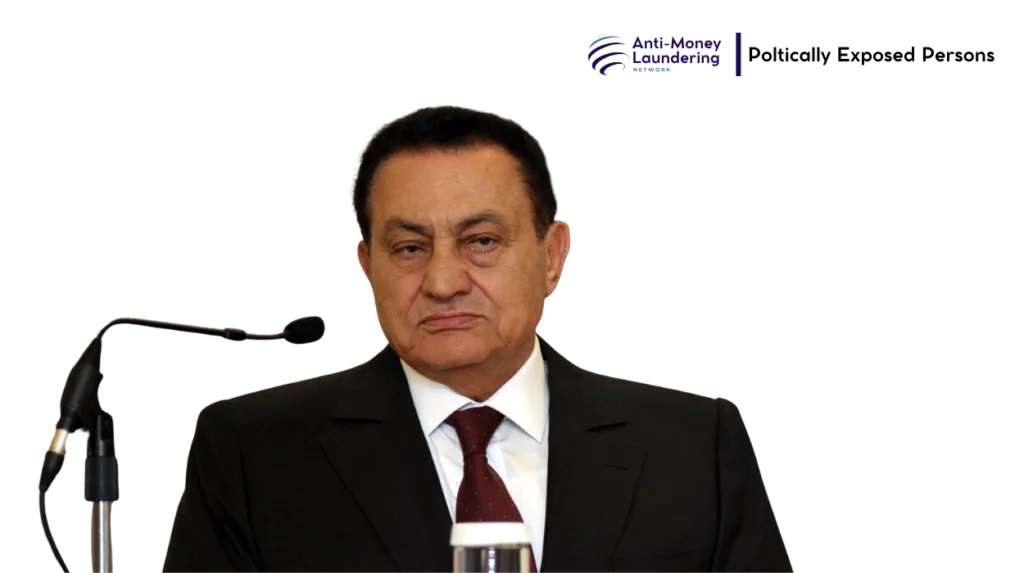Hosni Mubarak’s long rule exemplifies how entrenched authoritarian regimes facilitate vast corruption and money laundering. Exploiting weak institutions, Mubarak and his family amassed illicit wealth with little accountability, reflecting Egypt’s chronic governance failures and elite protection.
Hosni Mubarak, Egypt’s long-serving president, is a textbook example of a Politically Exposed Person (PEP) involved in systematic abuse of power to amass and launder illicit wealth. His family and close associates capitalized on control over state institutions and opaque political systems to divert public funds for personal gain. Despite substantial evidence of large-scale corruption and money laundering, Mubarak and his family benefitted from procedural loopholes, a politicized judiciary, and international legal obstacles that undermined full accountability. The political system in Egypt under Mubarak was characterized by weak transparency and pervasive impunity, enabling elite enrichment at the expense of national development. Although Mubarak himself died without serving sentences related to financial crimes, the legacy of corruption from his era remains a fundamental barrier to reform and financial integrity in Egypt. This case underscores the challenges of holding PEPs accountable globally due to their influence in both domestic and international financial systems.

